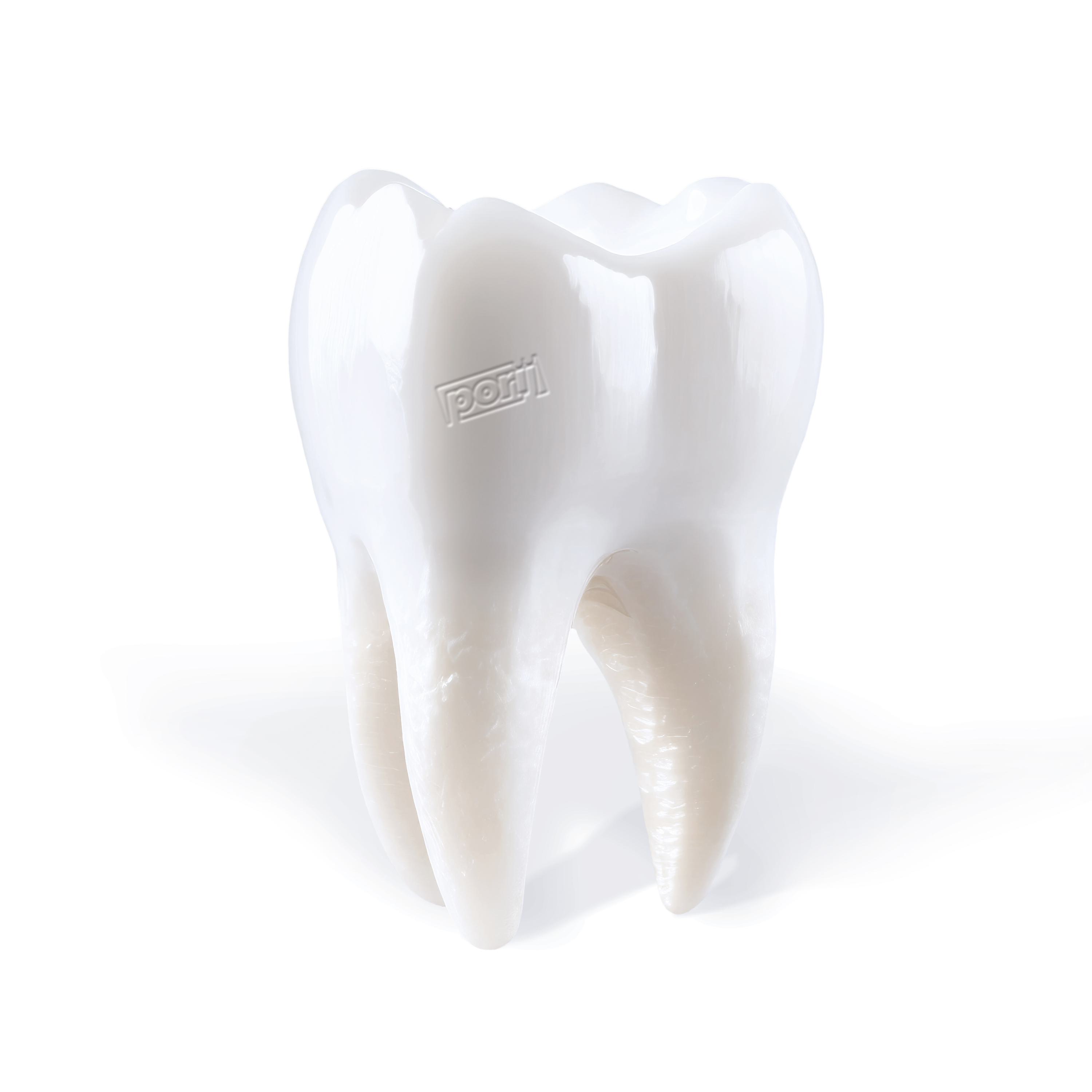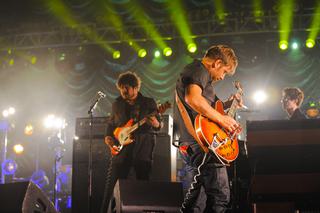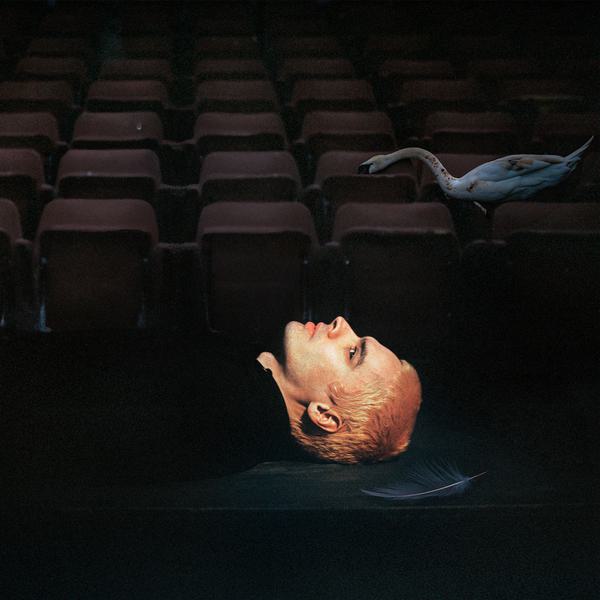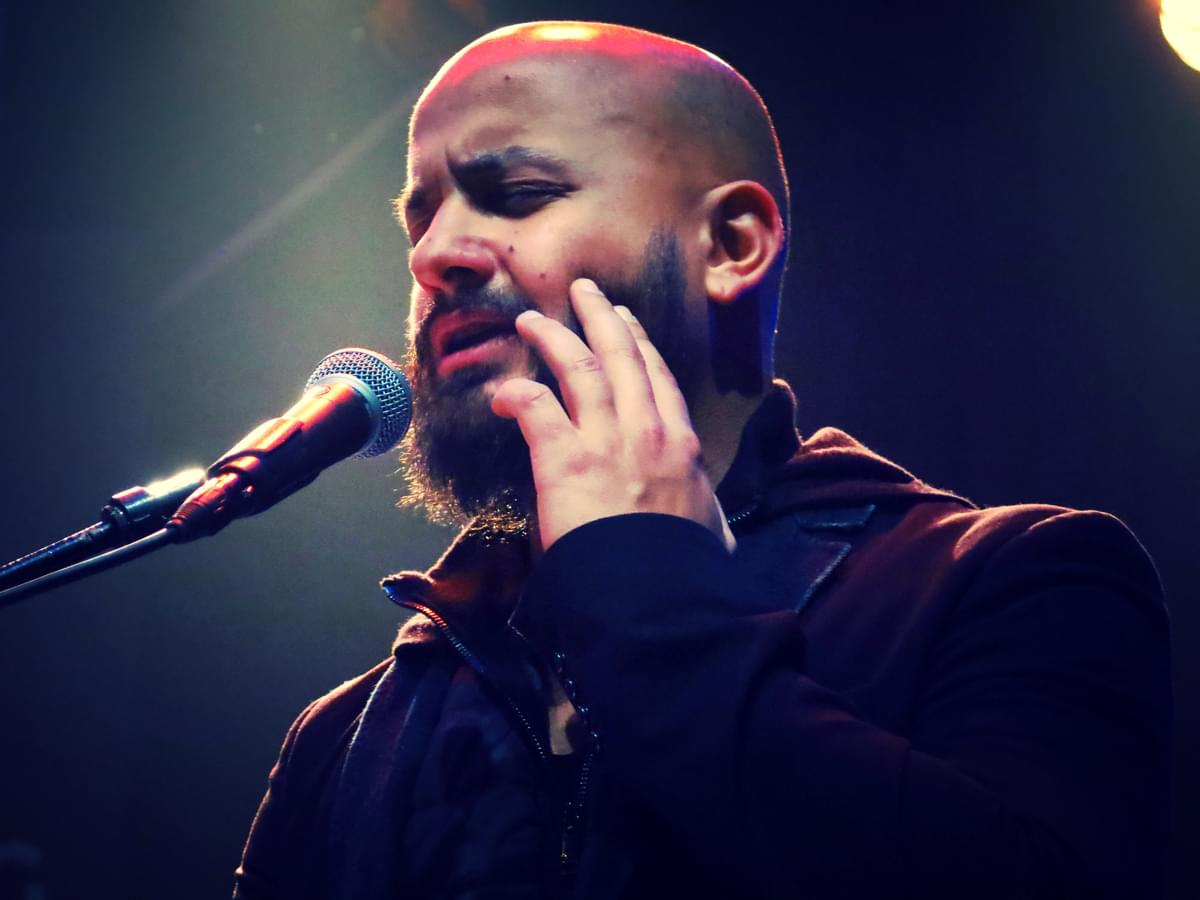
Eurosonic: David Bowie and John Peel haunt the hallways of this great musical town
I can’t say I ever expected to find myself on a journey cataloguing small-town Europe, drifting between its different scenes, its festivals, passions and industries. It seems I’ve become fascinated with a culture I never knew existed until barely a few months ago – the off-peak European festival.
For over two decades, a huge osprey of events have found their homes in the smaller, quainter surroundings of little county Europe, bringing festivals that not only aid in pulling in tourism, but offer a chance for local audiences to see new music first. Eurosonic, Holland’s off-peak festival is truly a surprising thing. With over 350 bands on offer over the four days, there are lots to look out for. That’s not to mention enjoying the city itself, and getting a sense of what it’s like for people living here – this is something that calls for a huge amount of planning.
Two hours by train from Amsterdam – Groningen, the town that plays host to Eurosonic, is as Dutch as you get. There are coffee shops and pointy architecture, quirky design shops, automated fast food machines, and canals everywhere - the city itself resting in an enclosure of canals not un-similar to the M25 (thankfully not so oppressive). Add to that a dusting of snow, and there’s no better place in the world to spend a weekend milling around watching bands.
Approaching the potential to see so many different acts requires it’s own level of thinking too. I tried my hand at giving a few a go. One was to follow the buzz trail - see the recent signees, the potentials, go where the A&R’s go. The other was to be therapeutic, pick a random assortment of names from the most interesting countries with the most interesting names and take a punt. In a funny way, this latter plan proved to be the best decision.
"Moments of curiosity can lead to great discoveries, and if anything, that’s why festivals like Eurosonic are important."
Thursday is spent blowing away the January cobwebs and settling in with a traditional Dutch dinner - then it’s off to see bands. First on the radar is The Big Moon – a British-based all girl 5-piece who I spent the day exchanging chat about touring and food while on the train. It’s the first time many of these guys have toured outside the UK, and you can tell they’re nervous. Whilst their songs could be a little more rip-roaring at points, The Big Moon are a clever balance of contained and feral, it’s incredibly listenable, but still retains a punky sensibility that you can sense is inspired by the riot girl era.
Just down the road we make a surprise nip into the university’s SU to watch Barcelona-based Núria Graham. We’re welcomed with a shrill and downbeat cover of Britney’s ‘Toxic’ that quickly moves onto a repertoire of music that’s suitably more moody. Selected by ETAP (European Talent Exchange Programme), an organisation that prides itself on giving local artists fair opportunities, Núria, is a bold favourite of the weekend, her voice and style of song writing sticking out against a stream of other singer-songwriters.
As we shift to the other side of the city – we make our way into one of the bigger venues – a 150-year old theatre, swapped back to front, so audiences stare out at the beautiful architecture of the theatre itself. It’s a mesmerising place to watch a gig, sitting backstage amongst the lighting rigs, it’s hard not to feel like anything you watch has it’s own place in Holland’s history. We’re here for Seinebo Sey, a Swedish-singer who would find a close companionship with our own Neneh Cherry. Seinebo is a joy to witness. Not only is their fire and blood spitting through her vocals, but also a calm touch, and gentle melodies that build into huge hearty soul records.
With many of the town’s underused buildings being converted into venues for Eurosonic, the whole aim seems to be a blend of bringing locals into previously unfamiliar or inaccessible spaces, while giving the foreign community many ideas about what can be turned into a gig venue.
In our wanderings, we encountered theatres, gymnasiums, dance studios, student unions and giant parish churches - meaning watching gigs if often a pinch yourself moment. Venues are small enough to seem almost intimate on the most part, meaning you and the 30 other people who are there feeling like you're discovering something no-one else has seen.
Which makes it all the more enjoyable when we come across the joyful Budapest Bar, in the town’s cathedral, Dir A-A Kurk. Their set mostly comprises of traditional Jewish Klezmeh music, a style that is happy enough on it’s own – but in these surroundings, it’s a radical difference from the buzzier bands we’ve seen so far, and a great release. For the few that have stepped away from the buzz bands and into this, they’re rewarded with a slice of heritage music, rich in folklore and tradition. The next day we bump into their management at a conference, they hand us a little bottle of vodka to enjoy with their record, and it doesn’t half feel like that’s the kind of band I want to get to know more.
Eurosonic supports an infrastructure that we have little of in the UK. Bands that are just breaking have a platform here where all of the industry is at their beckoning, and for the artist themselves that’s a powerful shift in dynamic.
Friday evening starts in much of an accidental manner – leaving the hotel with a plan to walk across the city, we’re stopped in our tracks by a huge candlelit vigil. 4000 local residents have taken to the streets to fight against a local fracking industry. It’s a small town story about an issue familiar to all of us, and a wake up call in the face of a city that, to those at Eurosonic, seems simply to be in party mode. The march ends in the main square opposite the main music venues, and speakers take to a microphone to make impassioned speeches, much to the surprise of those who came out to watch bands.
We make our way to see Blossoms straight afterwards. The band have received huge praise but for me they’re nothing more than a straight up Arctic Monkeys copycat, which is fine, but hardly boundary pushing. The venue is well over capacity, which leads to a max exodus – thankfully, this means we spend more time with our next pick – the beautifully Scottish, Daniel Docherty.
A busker by day, Daniel has a whole John Martyn sense about him. The clever use of a loop pedal means his one-man acoustic show has a good dynamic to it, and aside from his song writing, it’s easy to be mesmerised by the mans talent on guitar.
I must be critical of is the queues for locals that we spot outside of all the venues come Friday. These seem unfair in many ways – making life as a local music fan with a love of seeing bands, quite difficult. As a local you have to be incredibly well prepared to enjoy this, but it seems well loved on the whole by the town.
Friday’s highlight is at the church again, for Bachar Mar Khalifé – a Beirut musician based in France, whose experimentalism makes him another weekend favourite. Pairing up touches of metal with classical and Iranian influences, it’s like watching Omar Souleyman meet Metallica. Whether it's the textured layers, the difference of Middle Eastern classical to dark metal, or the booze setting in, their show is something formidable. The band is made up of family members, and further research proves that Bachar and co have been doing this for generations. They’d suit a smaller dance imprint in the UK, but it’s not unlikely we’ll be seeing more of Bachar when world music line-ups are released for festivals later this year.
The rest of the evening is spent watching little in particular, dotting ourselves in venues across the city – but one thing that sticks out is Iceland’s own Pink Street Boys – the self-professing loudest band in the Northern hemisphere. Their 60’s garage sound is bliss way of capping off the evening.
The slow start on Saturday allows us to go on the most leisurely of walks. Since last night, everything has been encrusted in a thin white layer of snow, which makes for an incredible chance to see the city in it’s full light. . With most of the conferencing community travelling home today – the city seems back it’s everyday state. There’s the smell of freshly cut wood burning away in the air, and street upon street of great artisanal food to enjoy.
British music inspires so many here – it’s DIY nature, it’s rustic sensibilities – but it’s funny, seeing the importance of sharing music across these different cultures, and through festivals like Eurosonic.
On our walk we come across Pluto – a-giant record store putting on free in stores all weekend. It’s a little like Rough Trade, if a little more grubby, but that vibe makes it the perfect place to watch a few bands before heading out into the evening. For the many locals who can’t afford tickets, these shows let them watch bands for free, gripping people from all around the local area, students to old school music fans.
The first band on offer – Bewilder, give us a little taste for what Dutch grunge might sound like. It’s a little link Nirvana, a little like Velvet Underground, and worth a further listen. Their follow up are Gallowstreet, an Amsterdam based brass band, which easily become our favourite find of the weekend. They blind with trumpets, they pounce with tubas, rock your feet with nasty little drum licks – a carnival band who make an absolutely storming arrival. Later in the evening, in a venue ten times the size, they’re just as good.
This year marks 30 years of Eurosonic, and in many ways it’s worth pondering on the culture of these kinds of festivals. Not only do they support an infrastructure that we have little of in the UK – they’re the festivals that give these bands their first steps towards much bigger success. At home bands that are just breaking can often find it hard to garner support, here, they have a platform where all of the industry is at their beckoning, and for the artist themselves that’s a powerful shift in dynamic.
It might be that these festivals become a means by which British bands find some turbulence on the continent – an industry that’s far better funded and well off than our own – and in essence, hopefully in many ways this ethos can transpire into something we’ll see more of in Britain – better backed showcases on new material that really bring together local communities, and insightful industry. We can only hope. But it’s funny – crossing the city here, David Bowie and John Peel haunt the hallways – their memories imprinted into the record shops and the local narratives.
Throughout the weekend we find countless tributes to Bowie poured out over the city. British music inspires so many here – it’s DIY nature, it’s rustic sensibilities – but it’s funny, seeing the importance of sharing music across these different cultures, and through festivals like Eurosonic. These implants, these hybrid moments, where bands and industry meet, are so important to the cross breeding that makes up modern music culture. If we can learn anything from the stories told by John Peel, week after week, it’s that
This year marks 30 years of Eurosonic, and in many ways it’s worth pondering on the culture of these kinds of festivals. Not only do they support an infrastructure that we have little of in the UK – they’re the festivals that give these bands their first steps towards much bigger success. At home – bands that are just breaking can often find it hard to garner support, here, they have a platform where all of the industry is at their beckoning, and for the artist themselves that’s a powerful shift in dynamic.
Get the Best Fit take on the week in music direct to your inbox every Friday

Maria Chiara Argirò
Closer
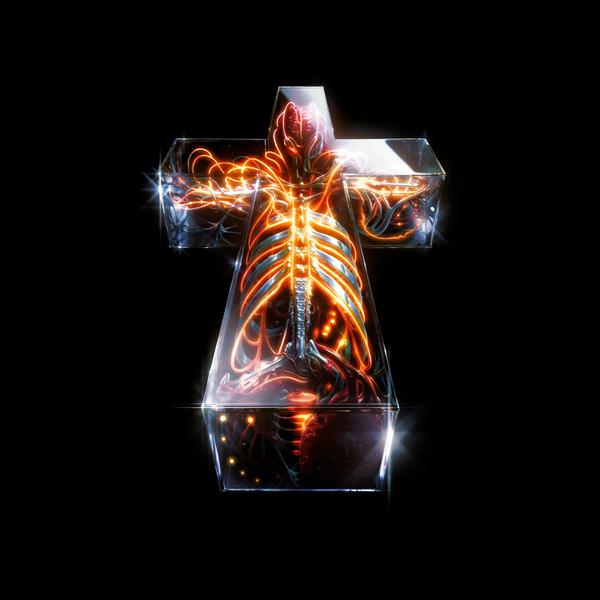
Justice
Hyperdrama
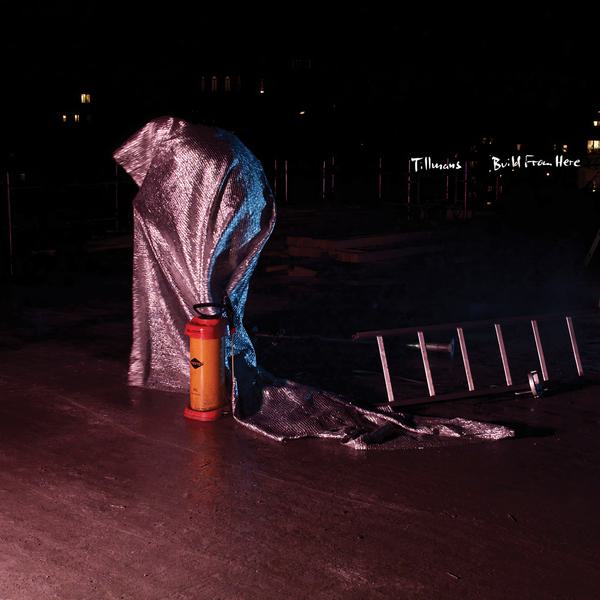
Wolfgang Tillmans
Build From Here
